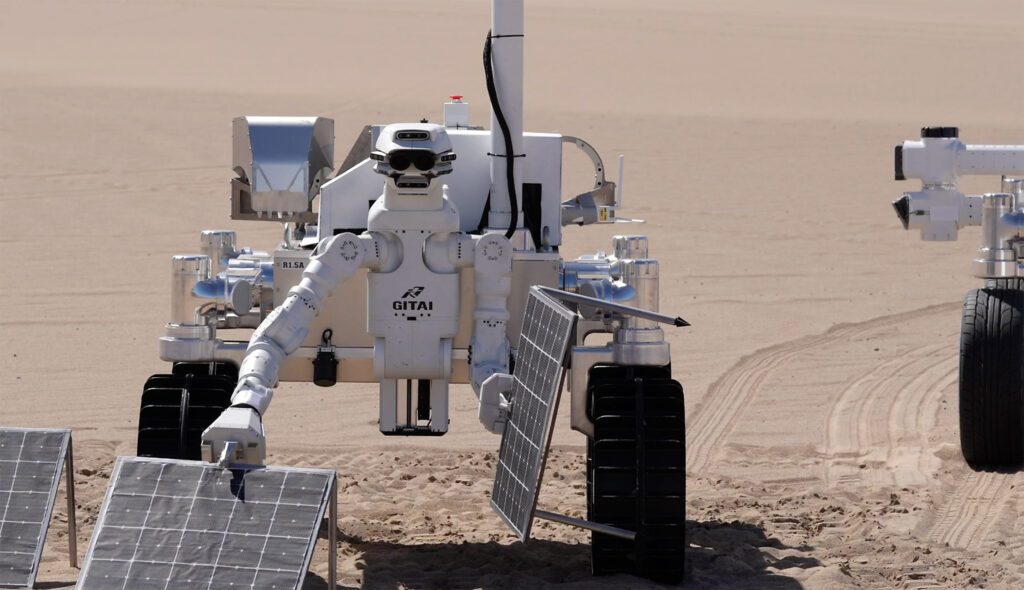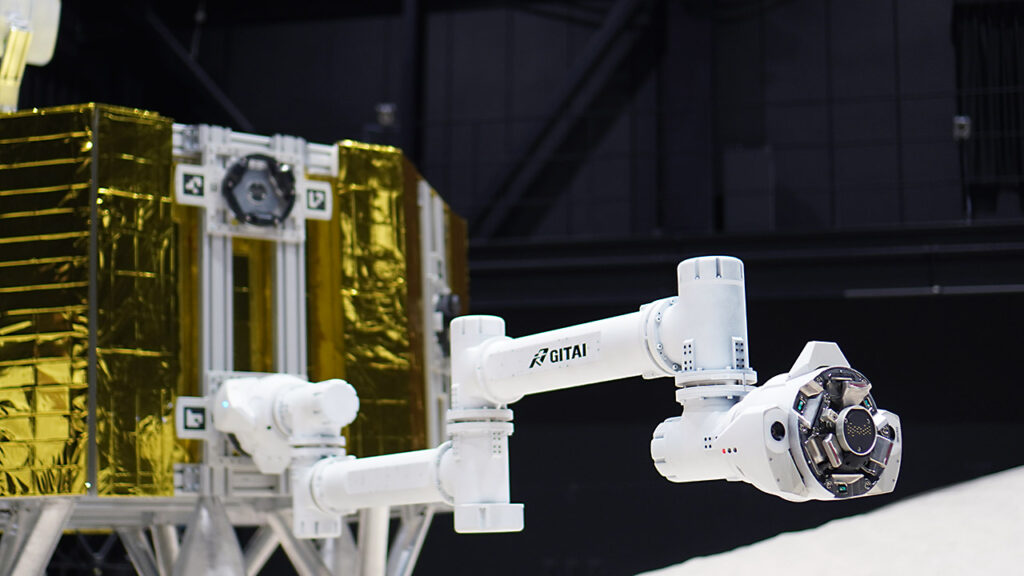There is a groundswell of commercial space initiatives focused on the moon, with established companies and newer upstarts all seeking to transform that cold, grey rock into a thriving hub for scientific and industrial activity. But that future will likely be impossible without a suite of robotic helpers.
Tokyo-based startup Gitai thinks autonomous robots, instead of human labor, can and should be used to make this vision a reality. The company thinks robots could be used for many activities in space — from assembly to inspection to conducting routine maintenance. To that end, the company has developed a robotic arm and a robotic rover for in-space applications.
Its tech has attracted continued interest from investors, with the company announcing today that it closed $30 million (4 billion yen) in a Series B extension round from Japanese funds and venture firms. Those include Global Brain CVC Funds, DCI Venture Growth Fund, the Dai-ichi Life Insurance Company, Ltd, ANRI III Investment Limited Partnership, ANRI I-II-III Annex Investment Limited Partnership, NVC No. 1 Limited Liability Partnership, JIC Venture Growth Fund 2 Investment Limited Partnership, Electric Power Development Company and Mitsubishi UFJ Capital IX Limited Partnership.
Gitai is planning on directing all of the new funding toward building out its U.S.-based workforce and expanding its U.S. manufacturing and testing capacity. It’s a mark of how seriously the startup is taking its American operations.
“We are going to invest in the U.S.,” Gitai CEO Sho Nakanose said in a recent interview. Nakanose, who just moved to the Los Angeles area, said that more than half of the Japanese workforce, including the engineers, have also relocated to the U.S. Gitai has already stopped hiring in Japan and will instead expand its U.S. headcount by 20 by the end of this year, and 40-50 by the end of next year.
The company is in the process of building out testing facilities for its robotics, including a mock lunar environment and a vacuum chamber.
The end goal is to boost the technological readiness level — a measurement system used by NASA and other government programs to assess the maturity of any given technology — of its two core robot products. The robotic arm has already spent time in space, when the company conducted a technology demonstration with it on the International Space Station in 2021. Gitai is currently gearing up for a second tech demo of the robotic arm next year — which will take place outside the ISS, a considerably more difficult endeavor — and hopes to send the rover to the moon as early as 2026.

These are big steps for the seven-year-old startup, especially considering that the company’s initial aim was not necessarily to go into the space market. Nakanose explained in a recent interview that when he founded the company, the space industry was the last market on his list. “I was looking for more sound, practical opportunities,” he said.
But he quickly realized that Earth-based robots have to overcome a major market challenge: human labor. “It is so difficult for robotic capacity to overcome human labor, especially in terms of the cost,” he explained.
The space industry, on the other hand, presents unique opportunities for robotics developers. Right now, the robotic arms attached to the ISS are expensive — the multi-phase program to develop a third-gen “Canadarm” robotic arm that’s affixed to the outside of the ISS is valued at $1.2 billion. But astronaut labor isn’t the answer, either: It’s still very expensive, and dangerous, to send a single human to space, let alone sending them to conduct extravehicular activity outside the station.
Private companies that are developing private space stations — which include Vast, Blue Origin, Voyager Space and Axiom Space — will also likely be looking for cheaper alternatives to the legacy robotics on the ISS. Gitai could fill this impending market need with its robotic arm.
“While SpaceX and Blue Origin are reducing the cost of transportation to space by 100 times, we at Gitai are taking on the challenge of reducing labor costs by 100 times,” Nakanose said. “We will provide the most labor for the moon and Mars and build infrastructure such as solar panels, communication antennas, fuel generators and habitation modules.”































Comment